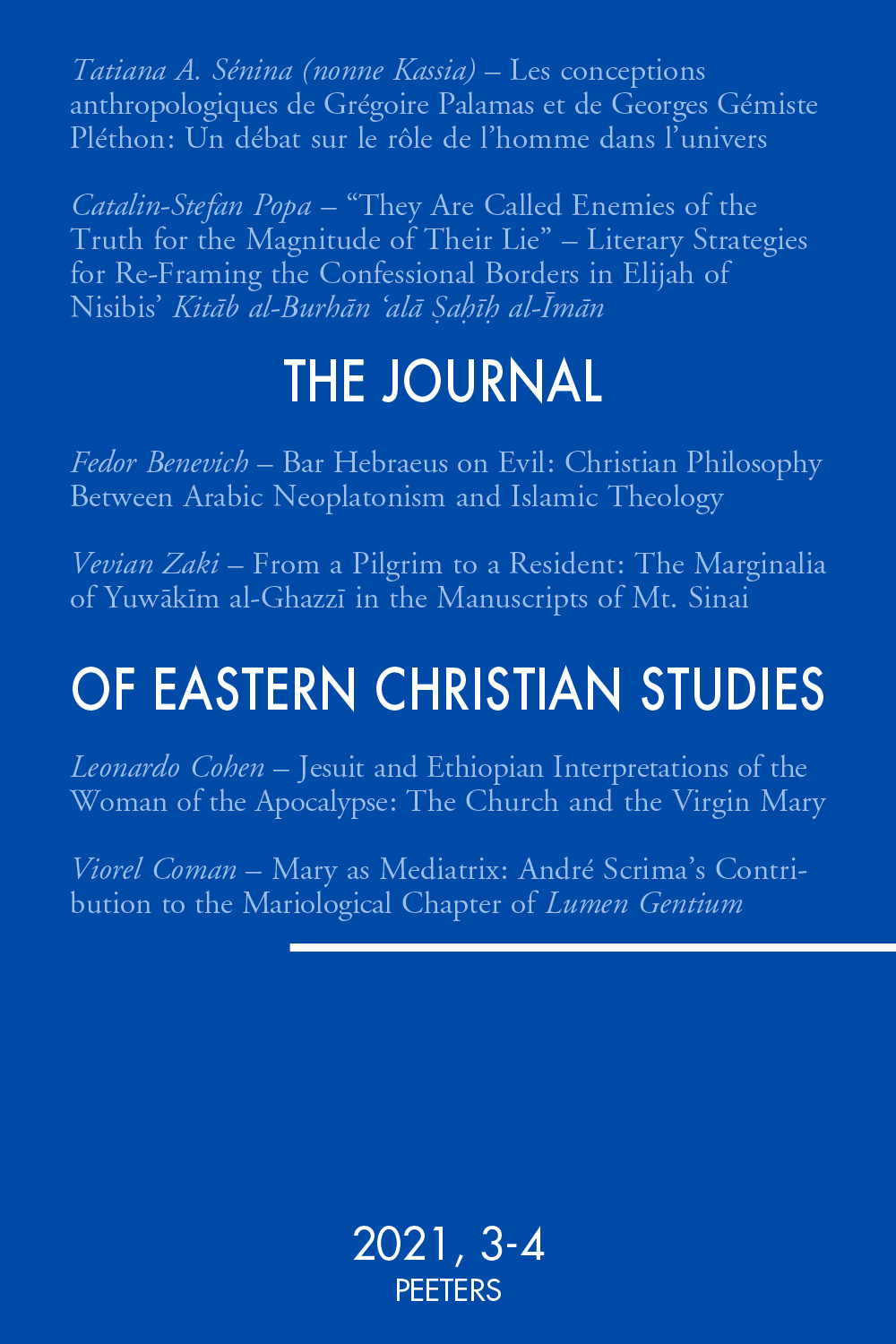 previous article in this issue previous article in this issue | next article in this issue  |

|
Document Details : Title: The Orthodox Church of Georgia and the Ecumenical Movement (before and after 1997) Author(s): TINIKASHVILI, David Journal: Journal of Eastern Christian Studies Volume: 71 Issue: 1-2 Date: 2019 Pages: 127-159 DOI: 10.2143/JECS.71.1.3285911 Abstract : The article analyzes the stance of the Orthodox Church of Georgia (OCG) towards the Ecumenical Movement before and after the OCG’s departure from the World Council of Churches (WCC) and the Conference of European Churches (CEC) in 1997, and documents the controversies accompanying this development. Up until the 1990s, the hierarchy of the OCG was outstanding in its energetic ecumenical activities within the country as well as in the international arena. After the collapse of the Soviet Union and the gaining of independence, religious nationalism and a hostile attitude towards religious and ethnic minorities grew stronger in Georgia. Having been tainted by a Soviet past, a mass mentality found such phenomena as pluralism, equality, religious freedom, etc., characteristic of the free world, to be foreign. A contingent of Orthodox fundamentalists is gradually growing stronger in the OCG and considers the defense of Orthodoxy against ‘sects’ and the ‘ruinous’ innovations of the West its holy obligation. Since the middle of the 1990s, this group intensified its agitation against ‘ecumenism’, and its pressure on the church hierarchy to keep its distance, threatening with schism in the worst case. This anti-ecumenical propaganda organized by monks is supported by a part of the married clergy, their parishes, the media, and some politicians. The OCG was eventually forced to leave the WCC and the CEC, although it inflicted church penances upon the monks leading the rebellion. Some of the anti-ecumenist monks go even further and are demanding the OCG to cease Eucharistic communion with all the Orthodox churches who are still members of ecumenical organizations. As the OCG would not satisfy this demand, the result was an actual schism of the radical anti-ecumenists and the foundation of their own ‘Truly Orthodox’ Church in Georgia. |
